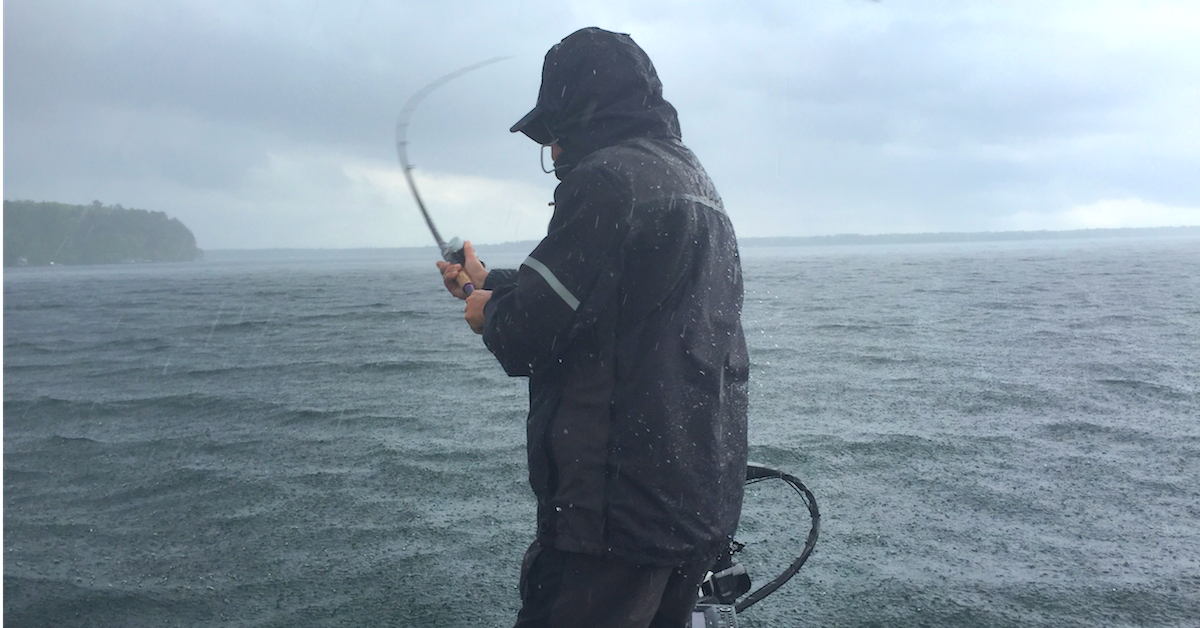5 Ways To Prepare For Your First Bass Fishing Tournament
Do you like to bass fish? Do you have a competitive streak? If your answer was yes to these questions, you should consider fishing a tournament. Bass tournaments began in the early 1960’s and have grown into a full-time, big business industry featuring two professional tours, numerous triple-A circuits, and countless small, local derbies. Finding a bass tournament to enter shouldn’t be too hard, just ask around at local bait shops, search the internet, or look for flyers up at boat ramps. Then it’s a matter of coming up with the entry fee and getting ready to fish.So, you’re all signed up, or maybe you’re someone that’s even fished a few tournaments before – what do you do next? How do you prepare? Tournament fishing puts a whole new twist on the sport, by adding a time and weight element that never before existed. Lots of people can catch numbers of bass, but can you catch big ones? Can you do it in a short 8-hour window under potentially adverse conditions?These are questions that even serious tournament anglers struggle with, so we figured it would be a good idea to reach out to several top touring pros and come up with the following list of ways to effectively prepare for a fishing tournament, whether it’s your very first or your hundredth.
1. Dress appropriately
If you’re miserable, you cannot fish effectively. Without question, the tour-level pros we’ve interviewed all listed proper apparel as the most important step in preparation for a bass tournament. Just because the forecast says it’s going to be clear doesn’t mean that a storm won’t blow in on game day. Bring extra layers, good raingear, and a good hat. Appropriate dress also applies if the forecast is extremely warm also – Sunscreen, long sleeves, and lightweight fabrics go a long ways to prevent heat stroke.
2. Develop a game plan
Ideally, you should try and get on the water a couple days prior to the tournament to see how the fish are biting, and what places you can catch them on. This is called pre-fishing, and it’s a huge step in tournament preparation. While pre-fishing, try to focus on patterns and types of structures, rather than specific spots. Use this information to develop a rough outline of how you plan to attack the day. It shouldn’t be specific, but successful tournament anglers usually have a framework in place to help them throughout the day.
3. Get your tackle ready
Like the Boy scouts always say, be prepared. It may be ok when fun fishing to use the same dull hook you’ve been using all summer, or keep old kinked line on a reel, but those things can cost you in a tournament setting, where a lost fish can mean a significant amount of money. Make sure your reels are oiled and have fresh line, make sure your moving baits have new or sharp hooks, and make sure you’ve got everything organized so you can find it during the derby. Nothing worse than spending five minutes looking around the bottom of your boat for a specific bait while the fish are biting. Also make sure you’ve got enough of whatever your primary pattern is. If you’re catching them on a purple worm, throw a couple extra bags in the boat – you don’t want to run out.
4. Have a contingency plan
Game plans are great, but what happens when you blast into your primary spot where you planned on starting only to find a local pan-fisherman anchored right on it. Or when the weatherman’s forecast of “light easterly winds” changes to a gale from the west that muddies all your water. Having a backup plan is essential to any successful tournament angler. One way to do this is to try and find two different patterns that you can catch fish on. If one fizzles, just switch to the other. Think about what a change in wind direction, clouds/rain, and angler pressure will do to your game plan, and develop contingencies.
5. Consider timing
Timing is hugely important in bass tournaments. Go down the bank in the morning with a topwater and you may catch a ton of bass; go down that same bank at noon on a busy Saturday and see how many you may catch. There are certain spots and patterns that work better in the morning, and others that become effecting later in the day. Consider this when developing your plan, and also while pre fishing. If you practice late into the day and find bass schooled up somewhere, they may not be there in the morning. This becomes even more critical if you fish tidal water, where the water level is in constant flux.Use these tips to prepare for your next tournament and most importantly, be safe and have fun!
Updated September 29th, 2020 at 11:05 AM CT


